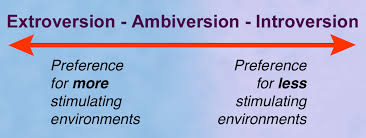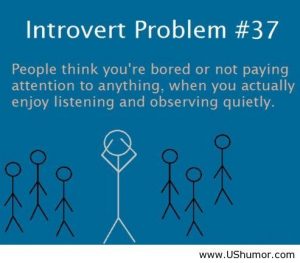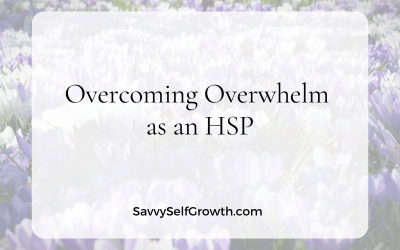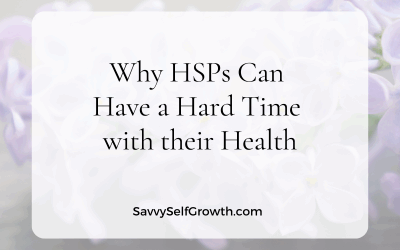 Have you felt like this?
Have you felt like this?
I know I have. Both as an employee at a software house, and as an entrepreneur running my own small business.
Introverts often feel like this, in my experience. I never realised how much this temperament influences our behaviour career-wise, until recently when I read a few books on Introversion.
I can remember as a teenager, my complete reluctance to pick up the phone and dial a number. My mom would ask “Phone the doctor and make an appointment”, or “Phone the pharmacy and ask for this information.”
I mostly just stood there with huge reluctance and resistance, my heart beating in my chest, my Mom frustrated with me and no-one understanding why this was so hard for me. “Just do it already, don’t be so helpless!”, I heard a few times.
As an employee, writing software programs for a big company, I had the same feeling. If I had to gather information from the client, I would much rather fire off an email than pick up the phone and dial, even though I’d have to wait for an answer.
I experience a similar thing as a small business owner. I’d much rather send a text to check in with a client, than phone them. I even sometimes let my calls go to voice mail, so I can listen to the message first before I phone back or reply another way. I just feel more prepared that way. I don’t think well when under pressure – and a request on a phone call feels like pressure to me.
“What?” I can hear some say. And others, I know, are nodding their heads in agreement thinking “That’s a relief – I do that too! Are we crazy?”
My answer?
No, we’re not crazy. We’re introverts.
What do Introverts Experience?
We sometimes feel invisible. We don’t really enjoy office parties. We prefer small groups and are bored by small talk. I admit, I can’t even do small talk about the weekend’s sport events. I can tell you a lot of information about the brain and neuroplasticity, though. Not great talking points for those laid-back chats with a drink in the hand.
We don’t loudly proclaim our opinions… in fact, we sometimes feel more comfortable hiding them. We love harmony and peace, and find conflict a huge challenge. We like to think about things for a long time before we make decisions and can’t give answers on the spot. And if we did, we can think about it for hours – “Why did I say it THAT way? There’s a thousand better ways I could’ve said it!”
We are great with thinking through complex problems and we’re not that great with talking. Some of us have lost some of the fear of talking on stage, or to groups, but we still don’t like it or enjoy it. We can do it because our job or business requires it, and when we do, we prepare for hours and still feel anxious ahead of time.
And the Difference between Extroverts and Introverts?
Our brains literally have a different version of serotonin than those of extroverts. Plus, introverts’s brains have more acetylcholine, while extroverts have more dopamine (neurotransmitters in the brain).
There are many definitions of introversion/extroversion – and the one I’ll go with for now, is that an introvert recharges in silence and solitude, while an extrovert recharges amongst people and with plenty of external, sensory stimuli.
 At the end of a client day (where I had 2-3 client sessions and perhaps a podcast interview), I just want to zip my lip and not say another word for the rest of the evening. For many years, I couldn’t understand why I felt so wiped out after teaching a 3-day EFT course. Now, I know. It also relates very much to my talents (via the Gallup StrengthsFinder) – one of my ‘draining’ talents is Communication. Lots of talking literally drains my energy resources and while that’s not true for all introverts, we do recharge in a quieter environment.
At the end of a client day (where I had 2-3 client sessions and perhaps a podcast interview), I just want to zip my lip and not say another word for the rest of the evening. For many years, I couldn’t understand why I felt so wiped out after teaching a 3-day EFT course. Now, I know. It also relates very much to my talents (via the Gallup StrengthsFinder) – one of my ‘draining’ talents is Communication. Lots of talking literally drains my energy resources and while that’s not true for all introverts, we do recharge in a quieter environment.
Does this mean an introvert can’t make headway in their career?
Absolutely not. Think about these amazing introverts, and what they accomplished.
Bill Gates
Eleanor Roosevelt
Abraham Lincoln
JK Rowling
Albert Einstein
Mahatma Gandhi who said, “In a gentle way, you can shake the world.”
Audrey Hepburn
Warren Buffett
How can an introvert make progress in their career?
There’s obviously no one-answer that fits everybody. The one thing I can say with certainty is that you don’t have to pretend to be something you’re not.
You don’t have to get ahead by trying to be louder than you feel like, super-talkative when you’re actually out of words or go to every party and stay late.
The first key, in my experience, is knowledge, awareness and acceptance. There’s nothing to fix, nothing to change and nothing to get rid of.
Introversion is what is called a ‘temperament’. It’s not the personality. A temperament is formed way before we have any experiences that shape our personality. The personality is shaped by experiences, traumas, hurts, parents, background and so on. Temperament is a more fixed aspect of us. (From Quiet. The Power of Introverts in a World that Can’t Stop Talking.)
It was a huge relief for me to start accepting my introvert-traits.
I really AM allowed to leave early after a staff meeting, because I’ve had enough of the sensory input and need to restore my energy.
It really IS okay to do my marketing in a quieter way than most extroverts I know. I don’t have to shout it all from the rooftops. I don’t have to (and can’t) compete with that – the mere thought of it is exhausting for me. I can do marketing through building relationships – which introverts are great at for various reasons. I also don’t have to stand in front of a live audience of 200 people to get my message out. I can in fact find a more introverted way (like doing a Teleseminar for 10 people) that suits my energy levels, communication style and temperament to a T.
 It is absolutely possible (and solid research proves it) to act like an extrovert for a little while, in order to get certain tasks done. We certainly can’t run away from everything that’s thrown at us that feels ‘too extroverted.’
It is absolutely possible (and solid research proves it) to act like an extrovert for a little while, in order to get certain tasks done. We certainly can’t run away from everything that’s thrown at us that feels ‘too extroverted.’
At work, we may indeed need to be in a brainstorming group for a few hours. Or, we need to do a presentation for the board or for a client, and our knees and voices might shake but we can do a great job because we prepared so well. We sometimes do need to make risky business decisions (something that extroverts welcome in general, while introverts tend to make decisions very slowly and hesitate even after a decision) and while it may not be comfortable, it’s possible. We all have to stretch out of our comfort zones to learn and grow.
The point is that we need to find the career routes that work for us, while acknowledging and celebrating the beautiful qualities that introverts can bring to the table.
Things like thinking deeply and bringing wisdom and careful thought, cautiousness, harmony, win-win situations, meditative silence, leadership with care for their employees, emotional intelligence, amongst many.
Are you an introvert finding it hard to make progress in your career? Do you want to move up but you don’t see a way to do that because the louder voices get to be heard and promoted? If you run your own business, are you unsure how to marry your ‘invisible’ need to getting your work out there?
I invite you warmly to apply for a complimentary Career Deep-Dive Session where we’ll take an honest look at what’s up for you, where you’d like to be, what’s in the way of that (it may not only be your introvert traits) and what your next steps could be to enjoy a meaningful and fulfilling career.
Apply here today. We work more hours than we spend with our loved ones. Let’s make it fun and authentic!
Image credit: Central Park’s North Meadow, Aug 2009




